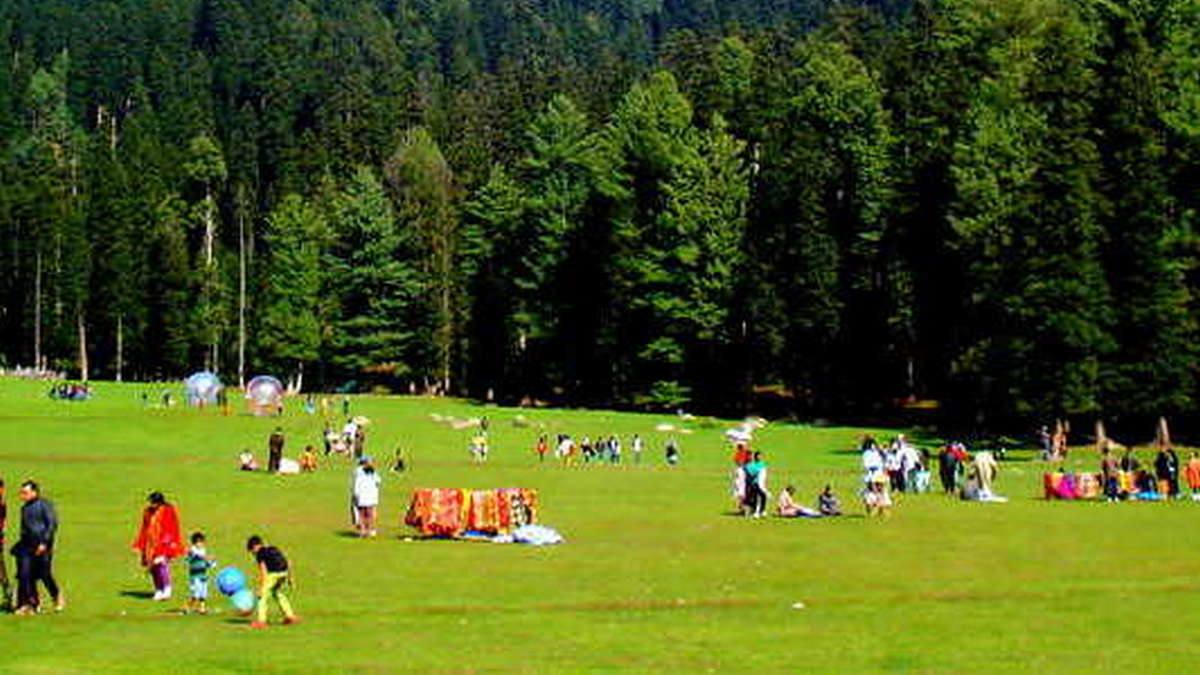The Pahalgam attack in south Kashmir has left at least 26 dead, mostly tourists and dozens injured.
Terrorists opened fire on a popular meadow on Tuesday afternoon in the deadliest attack in the region since the 2019 Pulwama strike.
Prime Minister Narendra Modi, spoke to Union Home Minister Amit Shah hours after the attack.
He condemned the incident and stressed that the BJP-led Centre’s “resolve to fight terrorism is unshakable.”
“I strongly condemn the terror attack in Pahalgam, Jammu and Kashmir. Condolences to those who have lost their loved ones. I pray that the injured recover at the earliest. All possible assistance is being provided to those affected. Those behind this heinous act will be brought to justice…they will not be spared!” Modi wrote X.
“Their evil agenda will never succeed. Our resolve to fight terrorism is unshakable and it will get even stronger,” he added.
Modi decided to cut short his two-day visit to Saudi Arabia and departed for New Delhi on Tuesday night following a terror attack in Kashmir’s Pahalgam, where 26 people, mostly tourists, were killed.
He was originally scheduled to return to India on Wednesday night.
But many are wondering. Why did the terrorists choose to attack Pahalgam in south Kashmir?
Let’s take a closer look
The terrain
Officials suspect that the attackers may have infiltrated from Kishtwar in Jammu and made their way to Baisaran via south Kashmir’s Kokernag.
Now, let’s take a brief look at the area.
The incident occurred around 2:30 pm in Baisaran Valley – which is around six kilometres from the resort town of Pahalgam .
Baisaran is an expansive meadow ringed by dense pine forests and mountains and a favourite with visitors from across the country and the world.
The area is known as ‘mini-Switzerland.’
**Read Pahalgam terror attack LIVE Updates here**
As per News18, Baisaran Valley was likely picked due to its terrain.
The area is rugged, steep, difficult to traverse and muddy.
This likely delayed the response of forces – and complicated rescue efforts – though authorities quickly sent out helicopters and local pony handlers to rescue the wounded.
As per Indian Express, authorities say the lack of security presence in the area was what made the terrorists likely choose Baisaran.
An attack on tourist sector
Pahalgam is also key to the Valley’s tourism sector – which has been on an upswing since 2018.
The choice of peak tourist season, when thousands flock to the Valley to see meadows and Mughal gardens, is no coincidence, officials say.
Pahalgam is also a stop for almost every tourist.
It also has cultural significance as one of the two routes to the Amarnath cave, which attracts lakhs of pilgrims every year.
The Baisaran pine forest, a popular trekking route, is also in Pahalgam.
Rauf Tramboo, president of the Travel Agents Association of Kashmir, told the newspaper the development was a “huge blow”.
Tramboo said tourism had witnessed a surge thanks to a “peaceful situation”, but now “we are already receiving queries on cancellations from businesses and consumer partners”.
The Centre has been going all-out to present Jammu and Kashmir as a tourist destination over the past few years.
Lieutenant Governor Manoj Sinha in March said over 350 films and web series have been shot in the picturesque locales of Jammu and Kashmir in the last five years.
“In the past five years, especially after the framing of new film policy in 2021, more than 350 films and web series were shot in J&K. When there is peace, it leads to overall development and such types of programmes as well,” the lieutenant governor said.
“Our efforts of peace and development in the past five years have made J&K more attractive destination for Hindi, regional and foreign film shooting,” he said.
NIA team reaches Pahalgam
Meanwhile, a team of the National Investigation Agency (NIA) led by an Inspector General on Wednesday reached terror-hit Pahalgam in Jammu and Kashmir.
A group of terrorists on Tuesday afternoon gunned down male tourists milling around eateries, taking pony rides or just picnicking with their families at the meadow touted as ‘Mini Switzerland’ for its serene beauty.
Security agencies have released sketches of three men suspected to be involved in the gruesome attack.
The trio, identified as Pakistanis, are Asif Fauji, Suleman Shah and Abu Talha, officials said.
The sketches were prepared with the help of the survivors’ description of the attackers, they said.
The Resistance Front (TRF), a shadow outfit of Pakistan-based Lashkar-e-Taiba terrorist group, claimed responsibility for the attack.
With inputs from agencies


)

)
)
)
)
)
)
)
)



